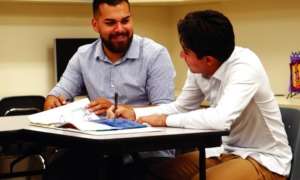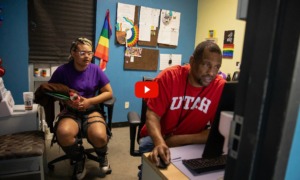The Senate Health, Education, Labor and Pensions Committee will begin work tomorrow on reauthorization of the Elementary and Secondary Education Act, two days after the ranking Republican on the committee backed the bill unveiled last week by committee chair Tom Harkin (D-Iowa).
Harkin filed a reauthorization bill 10 days ago that would eliminate the Adequate Yearly Progress reports introduced under the George W. Bush-era No Child Left Behind Act and many of the required penalties imposed on schools that did not meet the AYP standards. Harkin’s bill maintains the requirement that school accomplishments be disaggregated so that parents and others can determine how various groups of children are faring.
The bill, which he and Ranking Republican Member Mike Enzi (R-Wyo.), have worked on together for almost two year, was endorsed by Enzi in a statement on the HELP Committee’s website.
At least two of the committee’s members have expressed mild opposition to what they see as the bill’s strengthening of educational authority at the federal level.
Lamar Alexander (R-Tenn.), who has served as Education Secretary, said in a statement that he “will vote the Harkin-Enzi product out of committee,” but has suggested seven amendments to the legislation, most of which are “intended to stop the legislation from creating a national school board that would substitute its judgment for that of governors, state legislatures, mayors, local school board members, parents, principals and teachers.”
Lisa Murkowski (R-Alaska) took a different approach, submitting two separate pieces of legislation to the committee on Monday to “Alaskanize” the ESEA reauthorization process.
“It’s essential to fix the one-size-fits-all Washington-based mandates that don’t fit our state’s unique needs – in order to make sure not only that every Alaskan child has access to an excellent education, but that there is accountability for taxpayer dollars spent in our schools.”
In July, the House Education and the Workforce Committee approved a bill on party lines that would hand nearly total control over ESEA funds to the states. The House bill would strip funding restriction from virtually every title of the Elementary and Secondary Education Act, from Title I to Title VII. Federal funding provides about 6 percent of all elementary and secondary education money spent annually.
After the Senate hearing tomorrow – which begins at 10 a.m. – a group of child welfare advocates plans to host a live web forum on how ESEA reauthorization should address the needs of children in foster care. The organizers – Congressional Coalition on Adoption Institute and Fostering Media Connections – will also release an advocacy action guide for improving educational access for foster youth.
The Senate markup of ESEA is to begin at 10 a.m. tomorrow
Click here for more information on the advocates’ web session, which is scheduled for 3 p.m.






























